
Publisher:
Bonnie King
CONTACT:
Newsroom@Salem-news.com
Advertising:
Adsales@Salem-news.com

~Truth~
~Justice~
~Peace~
TJP
Jan-21-2012 19:47

 TweetFollow @OregonNews
TweetFollow @OregonNews
Complaint in U.N. Alleges U.S. Interfered with Spanish Torture Investigation
Salem-News.comU.S. and Spanish Authorities Attempted to Stop Cases Seeking Accountability of U.S. Officials for Torture and Unlawful Killing
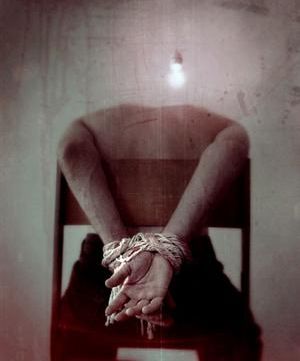 Once a staunch opponent of such practice, torture has become synonymous with U.S. politics in recent years. |
(MADRID, NEW YORK, BERLIN) -
 Gabriela Knaul of the UN |
The groups submitted evidence from U.S.-Madrid embassy cables obtained through WikiLeaks that show that senior U.S. and Spanish officials sought to interfere with the Spanish judicial process in order to shield Americans from criminal prosecution for torture and unlawful killing.
“The WikiLeaks cables reveal that the United States will go to extreme measures to ensure that U.S. officials are not called before a court of law to answer the torture allegations against them,” said CCR Senior Attorney Katherine Gallagher.
| “ |
Unfortunately, in Spain they found Spanish officials willing to work with them to keep justice from being done. We hope the Special Rapporteur will examine the serious breaches of international law detailed in our complaint, and that those who suffered under the U.S. torture program can pursue justice, without interference, in Spain and elsewhere. |
” |
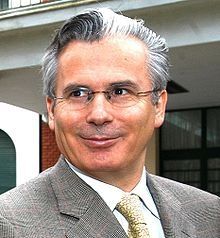 Spanish Judge Baltasar Garzón |
The complaint focuses on three criminal cases currently before the Spanish courts in which all potential defendants are U.S. citizens. The first is an investigation into the systematic use of torture at U.S.-run detention centers in Guantánamo and elsewhere initiated by Judge Baltasar Garzón, who oversaw the investigation until he was removed from office in 2010.
The second case is the so-called “Bush Six case,” filed against former Bush administration lawyers for elaborating and authorizing a torture policy, and aiding and abetting the torture of detainees. The third case regards the unlawful killing of José Couso Permuy, a Spanish cameraman killed in Baghdad in 2003 as a result of U.S. tank fire at his hotel.
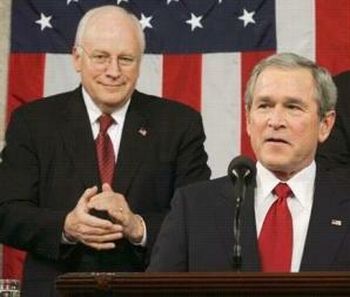 |
The U.S. cables reveal the intensive efforts undertaken by U.S. officials, through meetings, phone calls and strong statements about the possible negative impact of these cases on U.S.-Spanish relations, in coordination with certain Spanish officials, to influence the outcome of ongoing criminal investigations. As the former U.S. Ambassador to Spain, Eduardo Aguirre, explains in one cable: “While we are careful to show our respect for the tragic death of [José] Couso and for the independence of the Spanish judicial system, behind the scenes we have fought tooth and nail to make the charges disappear."
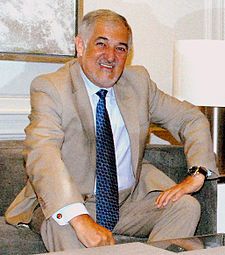 Spanish AG Conde Pumpido |
An April 17, 2009 embassy cable reveals that U.S. officials conducted “intensive outreach” in order to influence Spanish Attorney General Conde Pumpido on the Bush Six case. According to the cable, the day after U.S. officials warned that continued proceedings would have an “enormous impact” on the U.S.-Spain relationship, Conde Pumpido “publicly stated that prosecutors will ‘undoubtedly’ not support [the] criminal complaint.”
Similarly, after Judge Garzón initiated a criminal investigation into the torture of four former detainees, in a May 5, 2009 cable, Chief Prosecutor Zaragoza tells U.S. embassy officials that “he will also fight [Judge] Garzón’s latest move.” At this meeting, Zaragoza outlined the way he could “embarrass” Judge Garzón into dropping his investigation into the U.S. torture program and says that he “has a strategy to force [Garzón’s] hand.”
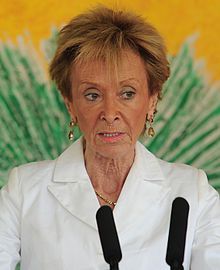 Spanish Vice President de la Vega |
Cables related to the Couso case reveal interventions by both Spanish and American officials in an effort to have the criminal investigation closed: the U.S. ambassador’s account of having “fought tooth and nail to make the charges disappear” is met with a similar account by the Spanish Vice President de la Vega, who expressed appreciation for the “excellent cooperation” between U.S. officials and the Spanish attorney general “in helping bring the case to a conclusion.”
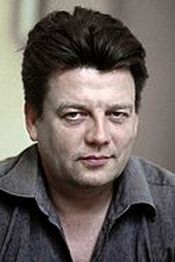 Germany's Wolfgang Kaleck |
ECCHR Secretary General Wolfgang Kaleck said, “The attacks on the Spanish judiciary show the urgent need for trials in third countries, since the U.S. is shielding alleged perpetrators and does not prosecute them in domestic courts.”
Invoking the fundamental principle of the right to an independent and impartial judiciary, CCR and ECCHR stress that these actions by the United States require the attention of the Special Rapporteur in part because they are not isolated. “Rather,” reads the complaint, “previous interventions in Belgium, Germany, and Italy suggest that they are demonstrative of a systematic pattern and practice of abuse aimed at protecting U.S. interests from adverse judicial findings abroad at the expense of the independence and impartiality of the judiciary in the countries in which they occur… Breaches of judicial independence foster a culture of impunity that is incompatible with international and domestic obligations to prosecute authors of human rights violations.”
CCR and ECCHR request that the U.N. Special Rapporteur investigate the cable revelations, demand that the U.S. and Spanish governments refrain from further obstructing or interfering with these cases, and ensure that the cases are resolved according to Spanish law and binding international law, independent of political considerations. The complaint, with an annex of the relevant cables, is available here.
The filing of the complaint comes on the same day that CCR and ECCHR joined with other international human rights groups in issuing a statement in support of Judge Baltasar Garzón, who will go to trial on January 24 in Madrid for charges stemming from his investigation into alleged crimes against humanity arising from the disappearance, torture and execution of nearly 115,000 people during the Spanish Civil war and the subsequent Franco regime. CCR and ECCHR have previously joined a complaint to the Special Rapporteur, which sought an investigation into the case against Garzón and whether it constitutes an improper interference with the judiciary.
For more information and filings related to the case, visit the Spanish Case pages on the Center for Constitutional Rights and ECCHR websites.
Attached Files
The Center for Constitutional Rights is dedicated to advancing and protecting the rights guaranteed by the United States Constitution and the Universal Declaration of Human Rights. CCR has led the legal battle over Guantánamo for the last 10 years – representing clients in two United States Supreme Court cases and organizing and coordinating hundreds of pro bono lawyers across the country to represent the men at Guantánamo. CCR has also filed cases against Donald Rumsfeld in Germany and France, and released a Bush Torture Indictment, ready to be tailored to the specific laws of any of the 147 signatory countries to the Convention Against Torture where he may travel. Visit www.ccrjustice.org; follow @theCCR.
 |
 |
Articles for January 20, 2012 | Articles for January 21, 2012 | Articles for January 22, 2012



Quick Links
DINING
Willamette UniversityGoudy Commons Cafe
Dine on the Queen
Willamette Queen Sternwheeler
MUST SEE SALEM
Oregon Capitol ToursCapitol History Gateway
Willamette River Ride
Willamette Queen Sternwheeler
Historic Home Tours:
Deepwood Museum
The Bush House
Gaiety Hollow Garden
AUCTIONS - APPRAISALS
Auction Masters & AppraisalsCONSTRUCTION SERVICES
Roofing and ContractingSheridan, Ore.
ONLINE SHOPPING
Special Occasion DressesAdvertise with Salem-News
Contact:AdSales@Salem-News.com

Terms of Service | Privacy Policy
All comments and messages are approved by people and self promotional links or unacceptable comments are denied.
[Return to Top]
©2025 Salem-News.com. All opinions expressed in this article are those of the author and do not necessarily reflect those of Salem-News.com.